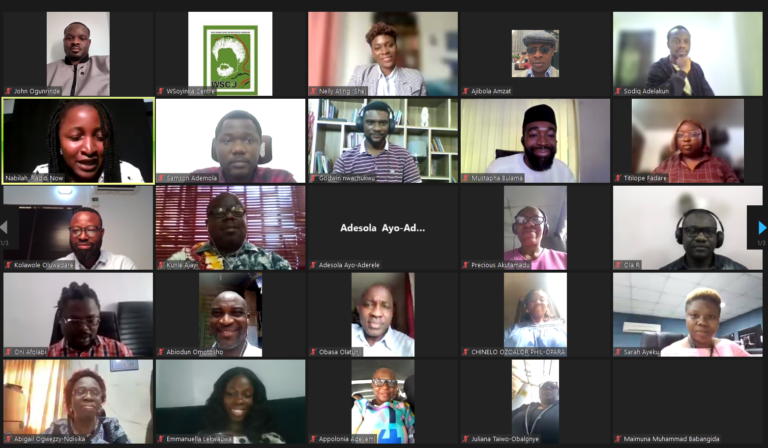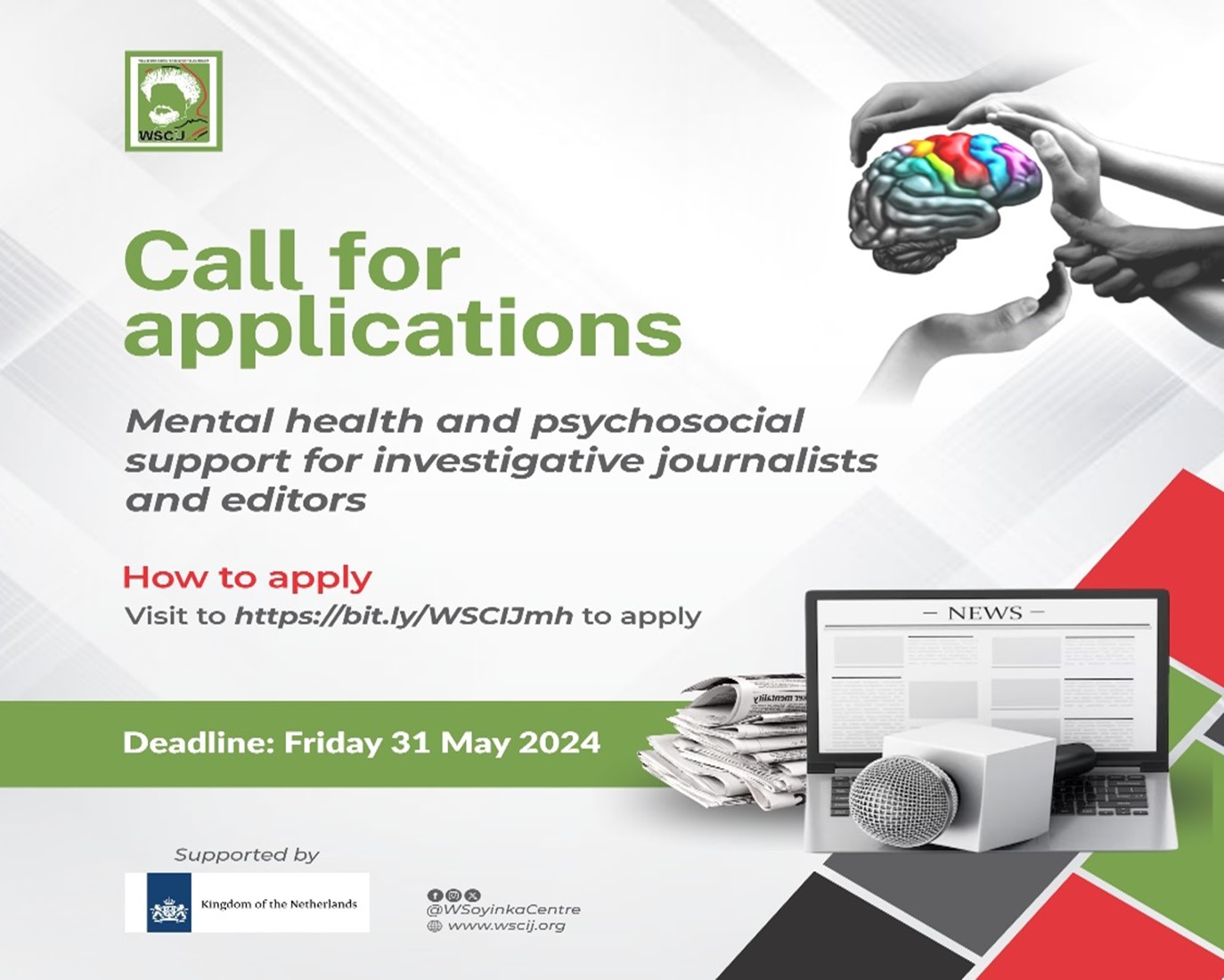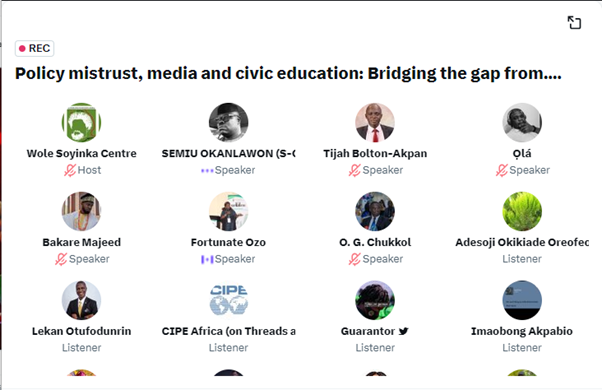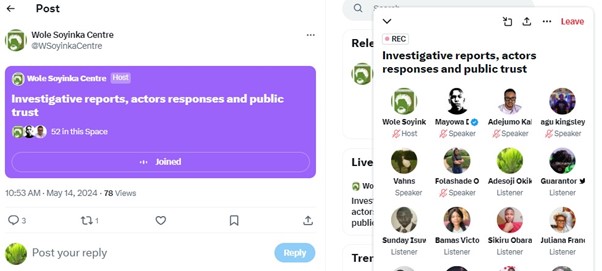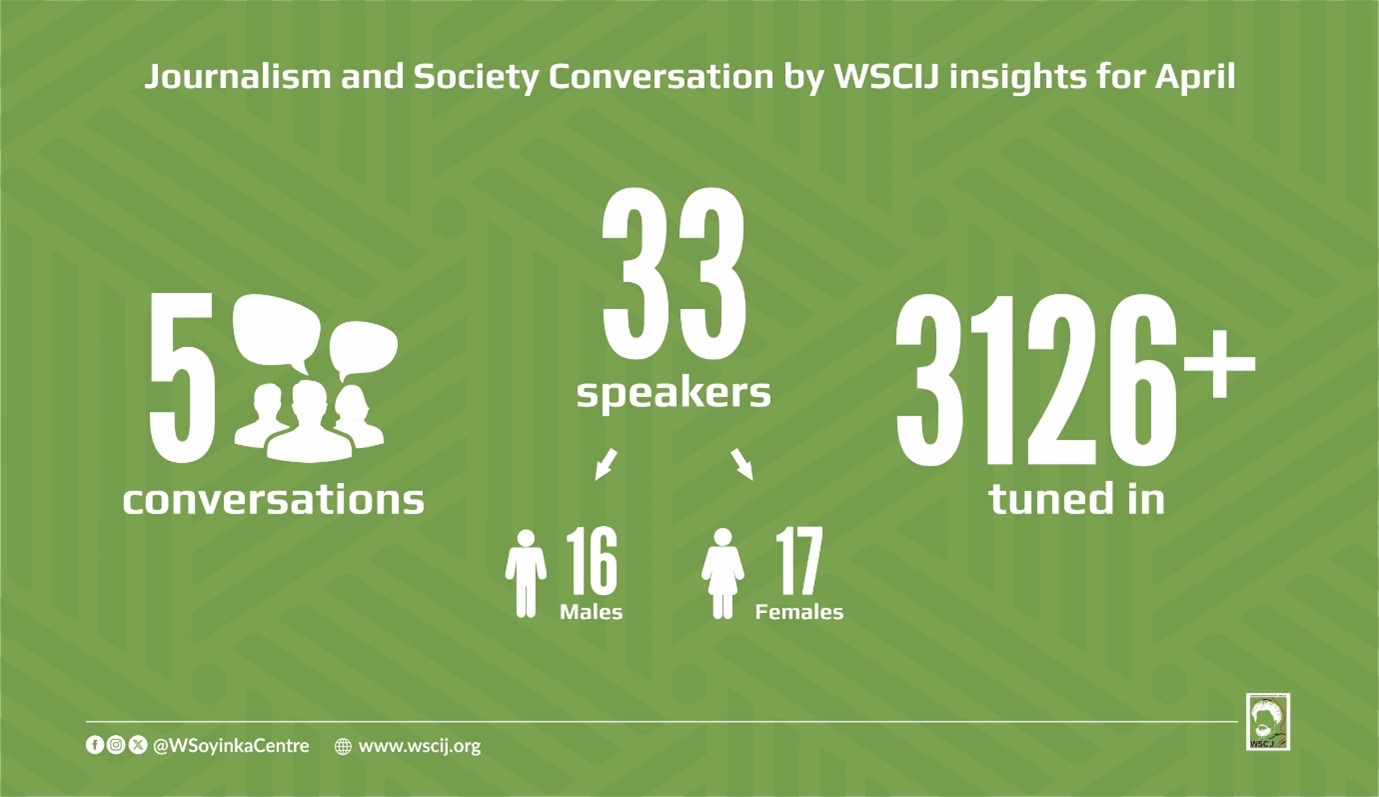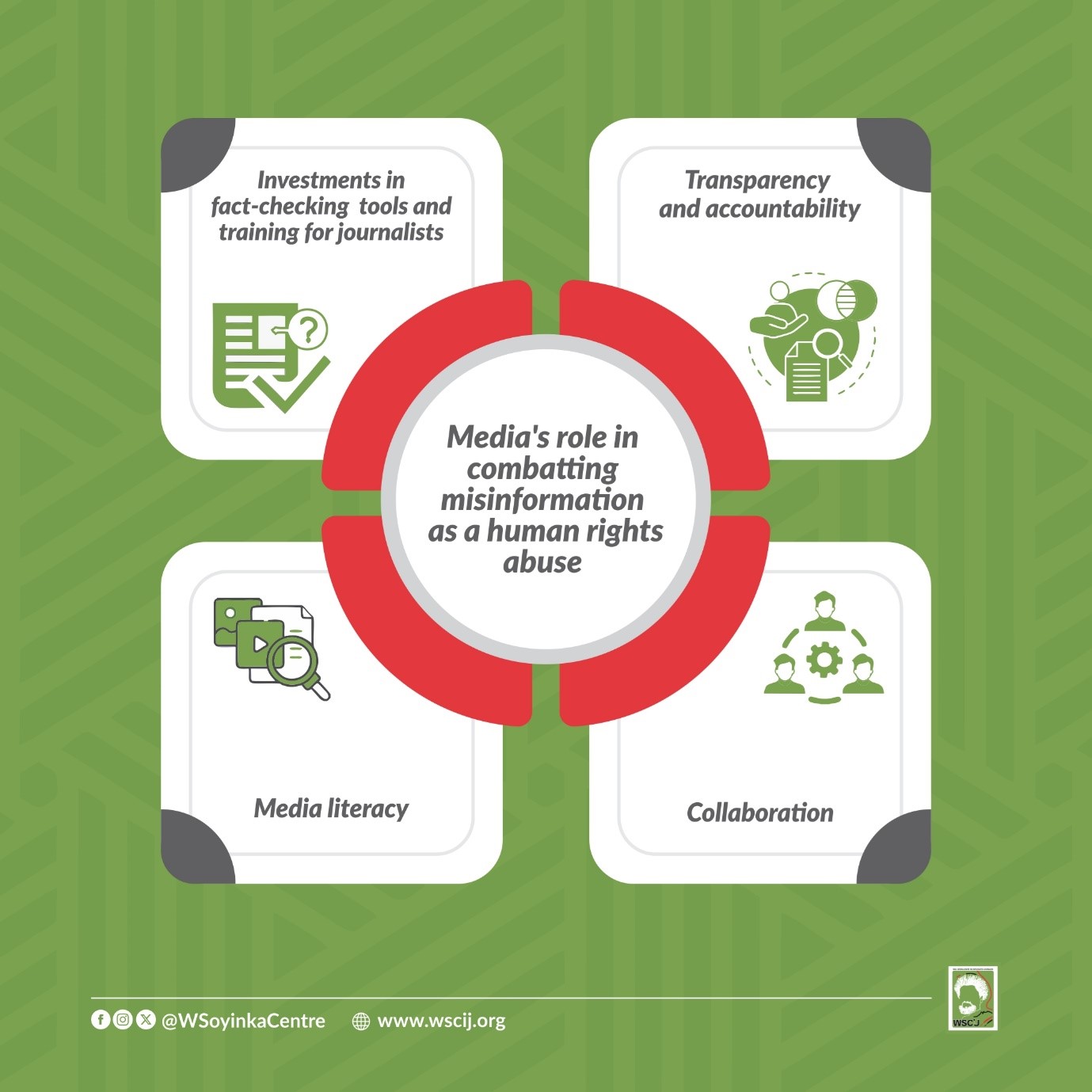Panellists at the 2023 Visual Realities Media Summit hosted by the Wole Soyinka Centre for Investigative Journalism (WSCIJ) on Thursday, 28 September 2023, addressed ethical challenges, the need to integrate artificial intelligence and promote collaboration for a more impactful visual storytelling experience. The event commemorated the 2023 International Day for Universal Access to Information.
The panellists at the event themed, ‘Online space, access to information, and capturing social realities, moderated by Nabilah Usman, a journalist with Radio Now 95.3FM, included Kolawole Oludare, Deputy Director, Socio-Economic Rights and Accountability Project (SERAP); Nelly Ating, freelance photojournalist; Sodiq Adelakun, photo editor, Channels TV; Mustapha Bulama, cartoonist, Daily Trust Newspaper; and Godwin Nwachukwu, Cameraman, TVC Communications.’
In his opening statement, Samson Ademola, Programme and Research Officer at WSCIJ, highlighted that the summit seeks to inspire photojournalists, cartoonists and videographers to uncover overlooked issues. Ademola disclosed that, between 2018 and 2022, only 178 entries (comprising 138 photos and 40 cartoons) out of the 888 submissions for the Wole Soyinka Award for Investigative Reporting (WSAIR) originated from visual journalists. He emphasised that this figure represents only a small fraction of the daily media output. Consequently, the centre believes that visual journalism has the potential to transcend its current role as page filler or entertainment, recognising the profound impact that images can have, being worth a thousand words.
Adelakun emphasised the importance of visual journalists embracing Artificial Intelligence (AI) and mapping skills as they continuously improve their storytelling prowess. He stressed the need for the photojournalists, cartoonists and videographers to convey messages responsibly in a world where interpretation is beyond the visual journalist’s control.
Bulama, on his part, stressed the power of cartooning to convey messages. He urged visual journalists to craft content that resonates with audiences, using visual cues such as headlines and text bubbles to provide context.
Ating noted the evolving photography scene in Nigeria and Africa, with emphasis on the growing awareness and improved knowledge among the audience. She charged photojournalists to be mindful of the impact and reach of their work while also staying responsible to those who trusted them with their stories. She highlighted the ethical challenges posed by the increasing trend of politicians engaging photographers and videographers to humanise their image for strategic social engineering.
Nwachukwu discussed the challenges faced by visual journalists, including the risk of physical attacks and intellectual property theft. He called on stakeholders to to bolster opportunities for videographers through training, acknowledging their contributions and facilitating access to loans for improved equipment.
The summit also acknowledged the impact of mobile journalism in capturing social realities. Fadare discussed the advantages of mobile journalism, including its cost-effectiveness and role in combating fake news. She cautioned against journalists competing with bloggers and influencers for likes and shares.
Speaking from the Civil Society perspective, Oludare reiterated the importance of access to information in a democracy. He urged the media to deepen their understanding of legal provisions and demand their rights as protected under the Nigerian constitution.
Panellists collectively recognised the need to increase coverage of underreported stories within local communities. They urged journalists to collaborate with Non-Governmental Organizations (NGOs) and Civil Society Organizations (CSOs) to amplify these stories requiring attention.
Afolabi Oni, the Communication Officer at WSCIJ, expressed gratitude to the MacArthur Foundation, panellists, and participants for their contributions. He said that the conversation would continue on X (Twitter) Spaces on Sunday, 1st October, exploring issues of press freedom challenges, regulatory frameworks and the role of investigative journalism in holding the government accountable and contributing to nation-building. The upcoming edition is themed ‘Nigeria at 63: What hope for media independence?’ .
Signed
WSCIJ Team

